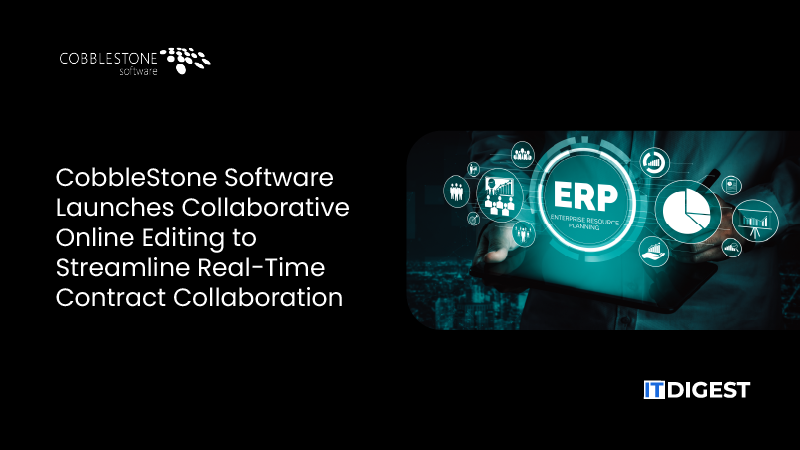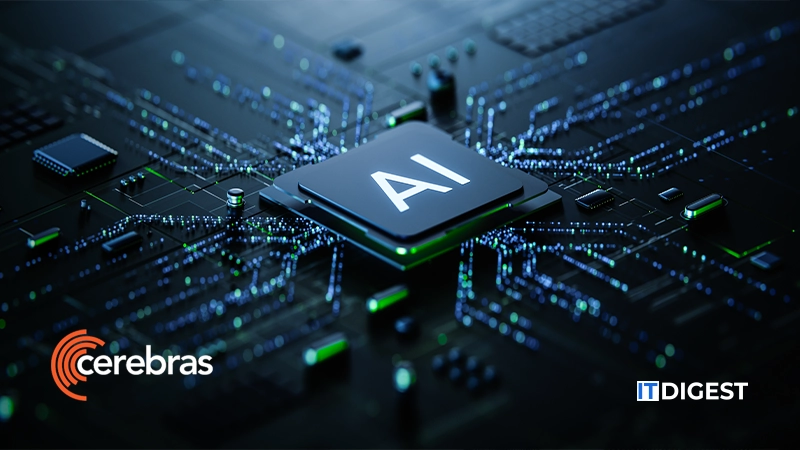In a major move for the artificial intelligence industry, Cerebras Systems announced the launch of its global initiative “Cerebras for Nations,” designed to help governments and allied partners build, accelerate and scale sovereign AI capabilities.
Based in Sunnyvale, California, Cerebras has been at the cutting‐edge of AI hardware, developing large-scale wafer-scale processors and systems. With the “Cerebras for Nations” program, the company is setting three foundational pillars:
- Co-design and build world-class AI supercomputers Working with government and private sector datacenters or cloud providers, Cerebras will deploy its third-generation Wafer-Scale Engine (WSE-3) chips in CS-3 systems to deliver faster training and inference than traditional GPU clusters.
- Co-develop state-of-the-art AI models Cerebras will provide dedicated AI research teams to partner with host nations or industries, jointly building domain- and language-specific models that are locally owned, secured, and optimised.
- Invest locally to support education, workforce and AI policy initiatives Beyond hardware and algorithms, the programme will support national objectives around digital transformation, academic partnerships, workforce upskilling, and infrastructure-as-a-catalyst.
Andy Hock, Chief Strategy Officer at Cerebras, said: “We are thrilled to announce the launch of Cerebras for Nations, expanding access to AI compute and adding partnerships to accelerate AI for science and society around the world.”
In the UK, the AI Minister commented: “Today’s announcement puts the UK at the heart of Cerebras’ global plans, a clear vote of confidence in our ability to harness AI to create jobs, transform the economy, and modernise public services.”
Cerebras emphasises that although it is a U.S.-based company, the initiative deliberately aligns with allied international partners and national interests in technology-trade, infrastructure sovereignty and industry growth.
Why This Matters to the AI Industry
From a broader industry perspective, this announcement carries significant implications:
-
Shift toward Sovereign AI Infrastructure.
Historically, much of the AI infrastructure particularly at scale has been dominated by major cloud providers, centralized data centres, and large-scale GPU clusters. The “Cerebras for Nations” initiative signals a deliberate shift: nations and regions want sovereignty over their AI compute, data, models and policy frameworks. For AI vendors and systems integrators this underscores a major growth area: on-premises or region-specific supercomputing for government, defence, national research and industry sectors.
-
Hardware innovation getting a national-scale platform.
With the WSE-3 and CS-3 systems, Cerebras claims substantial performance gains over traditional GPU-based clusters (for example, it states “inference and training more than 20× faster than the competition”). This pushes the hardware requirements of AI further into the infrastructure-native realm, not just cloud rental. Vendors offering AI hardware, system integration, cooling/power solutions, AI-ops services, will potentially see demand uptick as governments look to deploy these systems regionally or locally.
-
Domain-specific, nation-specific AI models.
The initiative emphasizes co-development of models customized by region, language, domain (for example, Arabic-English, Hindi, Kazakh, Spanish–Catalan–English) with local ownership. For the AI model ecosystem (platforms, MLops, data annotation, domain-adaptation services), this expands the opportunity: not just generic large models built in the U.S. then deployed globally, but tailored models built in local ecosystems with local data, aligned with local policy/regulation.
-
Workforce, policy and ecosystem development becomes strategic.
Cerebras’ programme is explicitly addressing workforce training, academic-industry partnerships, infrastructure as industry catalyst. That means beyond hardware and software, the entire ecosystem around AI (talent, policy, regulation, local start-ups, academic labs) is being anchored by this initiative. For businesses operating in AI (consultancies, system integrators, training companies, regional start-ups) there are new partnership and service-opportunities aligned with national digital-transformation road-maps.
Also Read: Snowflake Delivers the Enterprise Lakehouse with Enhanced Open Data Access and Flexibility for Agentic AI
Implications for Businesses Operating in the AI Industry
For companies in the AI hardware, software, integration and services space, here are some of the key takeaways:
-
Infrastructure providers will need to align with regional/government-driven demand.
Companies offering AI infrastructure (chip makers, systems, cooling/power solutions, data-centre build-outs) should note that governments may increasingly prefer regionally-deployed compute infrastructure rather than purely cloud-based, cross-border implementations. This can influence how you target global markets, comply with data-sovereignty regulations, partner with local or regional players.
-
Model-builders and MLops firms should pivot to domain/localised models.
As national programmes emphasise sovereignty and local ownership of AI models, businesses that build large AI-models will find increasing demand for: multilingual support, domain‐adaptation (healthcare, climate, public services, industry), deployment on secured infrastructure, end-to-end compliance/regulation alignment. Firms should position themselves for co-development, localisation and operationalisation in-country.
-
Services and consulting firms can tie into governmental digital transformation.
Because the initiative emphasises workforce development, academia-industry acceleration and policy frameworks, there is a broad scope for consultancies, training firms, AI-education start‐ups, policy‐advisory firms and ecosystem integrators. Businesses that specialise in helping governments and enterprises adopt AI responsibly including governance, workforce readiness, infrastructure build-out stand to benefit.
-
Competitive dynamics: hardware vendors vs cloud; border/regional strategy.
The fact that Cerebras emphasises “sovereign” deployments means competitive dynamics may shift. Cloud-only models might face headwinds in regions seeking in-country compute. Hardware vendors that scale rapidly, deliver region-specific solutions and partner with governments will gain advantage. For software companies, being able to deploy securely, locally and integrate with on-premises infrastructure will be an asset.
-
Potential for accelerated AI innovation across industries.
With national-scale compute and model capability, sectors such as healthcare, industry, research/academia, defence, smart cities and public services will gain access to high-end AI capabilities faster. Businesses embedded in those sectors should monitor this trend, partner early, and adapt their offerings. For example, health tech companies may collaborate on local model-training for clinical data; manufacturing firms may use sovereign AI compute for edge-to-cloud optimization.
Conclusion
The launch of “Cerebras for Nations” by Cerebras Systems marks a pivotal step in the evolution of artificial intelligence infrastructure from generic cloud-based, globally distributed compute toward sovereign, localised, nation-centric AI ecosystems. For businesses in the AI hardware, software, services and consulting ecosystems, this development signals a shift in how AI will be deployed, scaled and commercialised globally.
Organisations that align with this new paradigm providing regionally-deployed hardware, co-developed model frameworks, localised training and workforce development, and strong governance & compliance will be well-positioned to lead in the next wave of AI transformation. The future of AI may well be not just about what models you deploy, but where and how you deploy them, and who retains the expertise, infrastructure and data.
For your readers and clients in the B2B arena (especially in AI and cybersecurity), the message is clear: sovereign AI is becoming strategic. The ability to deliver at national scale, with local ownership and strong performance, is set to reshape the industry and the businesses that anticipate and adapt to that will gain the greatest advantage.


































